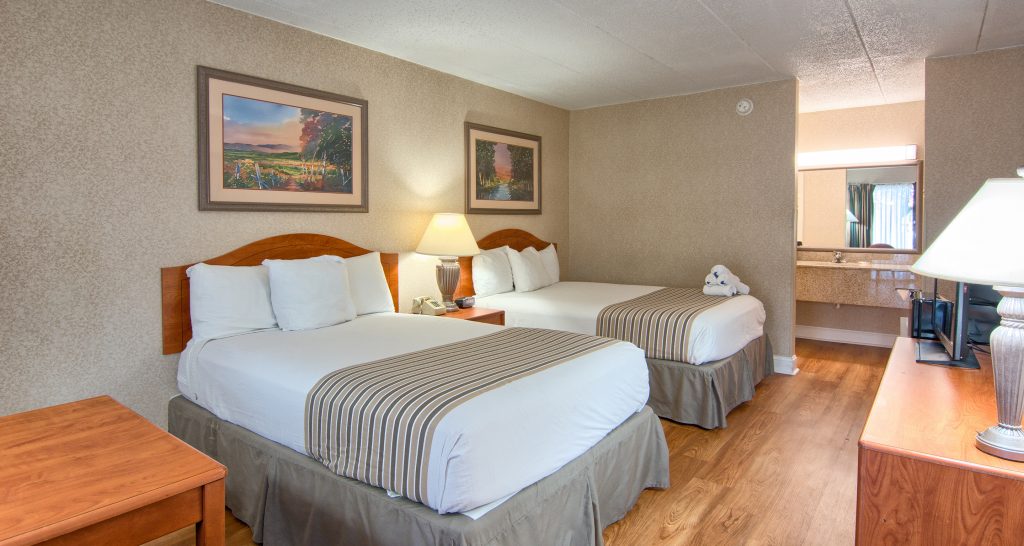Vimana Franchise Systems is continuing its ongoing restructuring by offering new deal terms to all of its franchisees.
In January, Vimana unveiled an entirely new brand infrastructure that included franchise support systems for its franchisees such as a global loyalty program, access to the Constellation central-reservation system, a free cloud-based property-management system, preferred online travel agency agreements, a worldwide sales department, a purchasing network, a dedicated account manager, online training through Vimana University, custom-built vanity websites and new consumer marketing tools.
Now, Vimana is offering franchisees deal terms that include no initial fees, annual agreements and no fees for the first 90 days of their association, with 4-percent fees for any period following this.
When asked why the company is restructuring its franchisee deal terms, company CEO Steve Belmonte told HOTEL MANAGEMENT that it was a natural choice after learning Vimana’s franchisee retention rate was close to 96 percent. Belmonte disliked the haggling process required to find new franchisees, who he said were often looking to save every dollar they had during the early stages of running their business.
“I had to ask, what do we have to lose at 96-percent retention, and why am I concerned with holding an owner’s feet to the fire over long-term agreements,” Belmonte said. “One of the blocks we run into is franchisees wanting deeper concessions on the front end. They want to negotiate discounts on application fees, marketing fees, want extended windows and special treatment, so let’s just get rid of it all.”
Belmonte reasoned that it isn’t his business to determine whether or not an owner wants to sell his or her property to an owner who may have a relationship with another brand because he personally doesn’t own the brick and mortar. “That owner should be allowed to sell without passing up a chunk of profit in the form of liquidation damages,” Belmonte said.

Read Between the Lines
According to Belmonte, one of the biggest challenges facing hotel operators is contractual. He says many owners fail to fully understand the terms of the contracts they sign, which often are restrictive of their future decision making if they are unsatisfied with a business relationship.
“There are many owners out there that still go with the size of a company first; they don’t take the time to look at the deal before them, think about the company they are signing on with and really do the math,” Belmonte said. “I’ve had owners come to me telling me they want to sign on with a brand that has 400 hotels… and they are all crummy. What does that say about the flag you are going to buy? ‘Come stay with me, there are 400 properties like mine that are not so nice?’”
As the founder of Hospitality Solutions, a company that negotiates liquidated damage claims for hotel owners, Belmonte has eight years of insight into the monetary losses that result from a failed deal. In some cases, a brand can be more profitable terminating properties out of bad deals due to gaining new initial fees on top of liquidated damages in the hundreds of thousands. It’s good business for brands, but for owners it can feel like a trap.
In addition to this, the level of competition seen throughout the industry has never been higher. However, Belmonte said this has been a boon for owners willing to do their homework.
“When I was president and CEO of Ramada we grew our brand from 400 to 1,100 hotels domestically, but we only had 59 other brands out there to contend with,” he said. “Today there are close to 200 brands out there, every company on Earth has their own soft brand or secondary brand, and it’s good for owners.”
All of this has fueled Vimana’s goal of becoming “franchise friendly” by offering more free services for economy and midscale properties. Belmonte hopes to eventually change the mindset of the hospitality industry from the bottom up, creating a level playing field between the owners and brands.
“Change of this type always happens from the bottom up, in economy and midscale,” Belmonte said. “Ten to 15 years ago, you had to have a franchise. Franchise companies knew this, and their agreements reflected that. People were used to it. But now with the internet you don’t need to rely on that brand as much.
“When we were formulating our new infrastructure, we wrote a list on a whiteboard: What don’t franchisees like?” Belmonte said. “Now let’s take those things out and make our model.”
